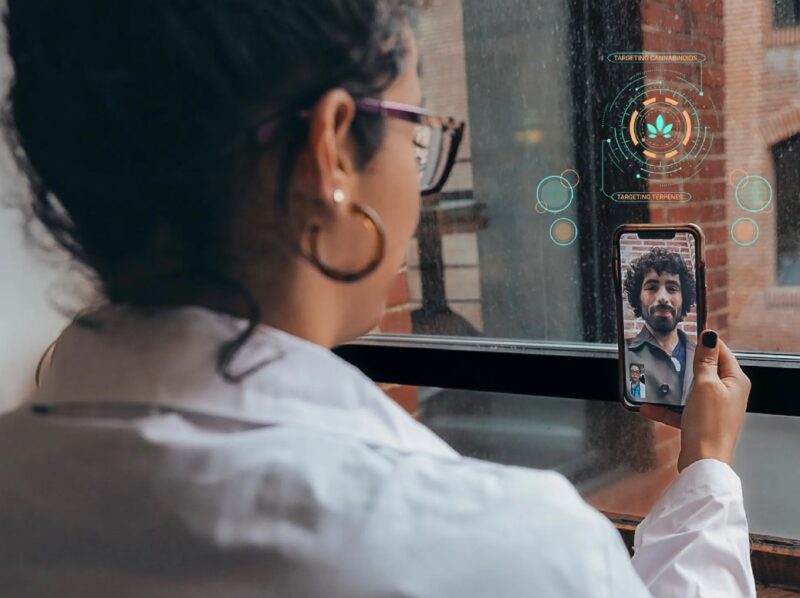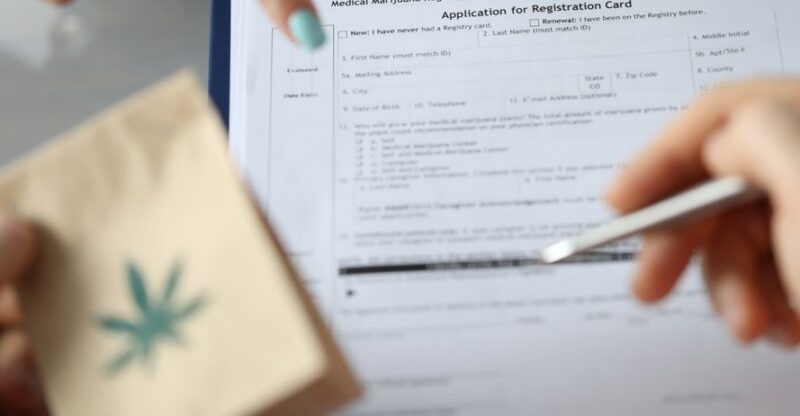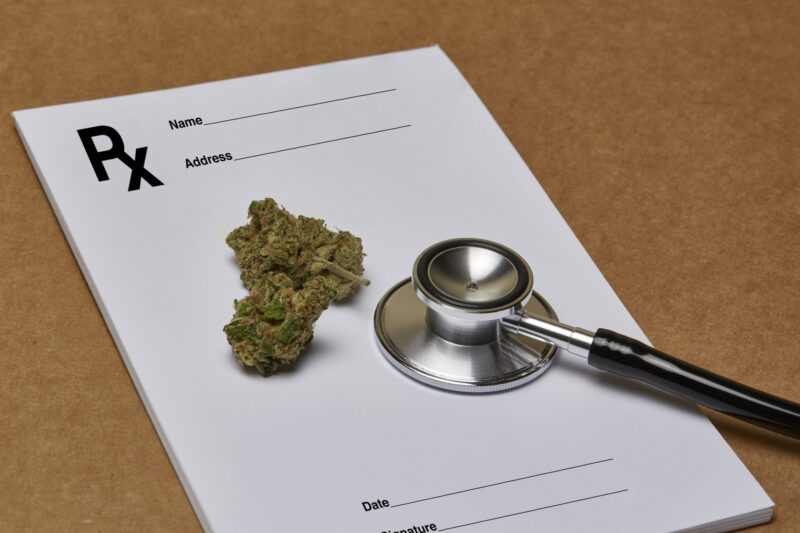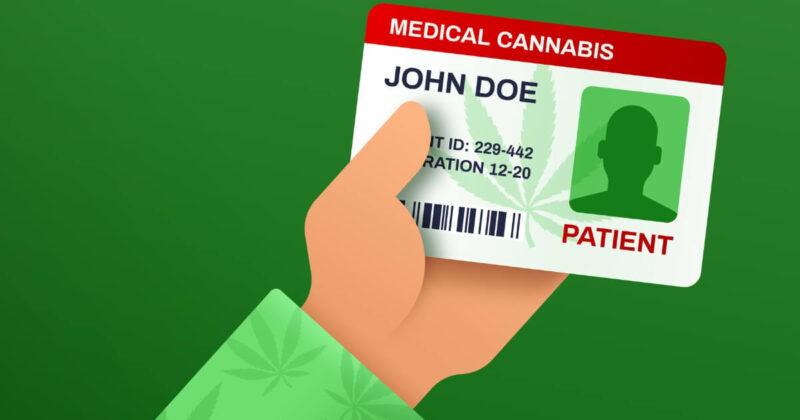Recreational marijuana, cannabis, or weed use remains illegal in most parts of the world, including most territories in the United States. But while leisure use continues to be frowned upon by authorities, at least 37 US states have medical marijuana programs for qualified individuals.
Cannabis card regulations vary from state to state, but they all aim at alleviating specific symptoms in individuals with medical issues. States issue a medical marijuana card known by many names as MMJ, weed, or cannabis card to ensure that only eligible people access cannabis products.
Before deciding to apply for one, it helps to know basic information about this state-approved marijuana use and user identification program.
1. You Can Get MMJ Without A Card In A Few US States
California was the first US state to recognize medical marijuana use, and the state has allowed MMJ access to individuals without a card. A few states have followed suit, including Virginia, where, as of 01 July 2024, has allowed patients to use their attending physician’s certificate as proof of eligibility in addition to a government-issued identification card. The medical practitioner must be accredited by authorities to do so.
This new legislation allows users to purchase medical cannabis products in dispensaries and other state-approved retail shops without waiting weeks to get approved. However, this isn’t the case for the majority of US territories.
2. Most States Don’t Allow Access To Dispensaries Without An MMJ card

Generally, a dispensary means a space where medicines are prepared and sold. That’s what MMJ dispensaries do. Cannabis dispensaries are state-regulated and strictly enforce marijuana products and buyers’ access rules.
In Minnesota, only cannabis products in vaporized, pill, or liquid forms can be obtained by eligible patients. Only pharmaceutical derivatives such as tetrahydrocannabinol (THC) and cannabidiol or CBD oil are sold in Texas. Conversely, more MMJ-friendly states like California and Colorado have dispensaries with vast choices of medical marijuana products waiting for their clients.
In most cases, you’re not allowed to access these retail stores without an MMJ card, except for one state. If you’re an eligible user, it’s best to carry your card in your wallet for continual access.
3. Who Can Get An MMJ Card
Besides identifying a qualified user, the medical marijuana card enables patients to access marijuana products in dispensaries or have them delivered to their homes. Additionally, some states may allow patients to grow a certain amount of cannabis plants to ease specific health issues. Note that it’s illegal to grow marijuana in some states like New York and New Jersey, even if you have an MMJ card.
In some states, patients may appoint their caregivers to get an MMJ card so that the latter can access, administer, and cultivate cannabis on their behalf. The state will require parents or legal guardians to get one for juvenile patients.
4. How To Get An MMJ Card

Patients with chronic pain and anxiety or depression, among other health conditions require daily medical marijuana use. If you’re living in a state where a medical cannabis card is strictly required, you must get one if you have any state-determined issues for MMJ use.
Again, state rules on cannabis card qualifications application may vary, but the general steps would involve the following:
5. Get Medical Marijuana Use Authorization
As mentioned above, you must visit any state-recognized medical marijuana doctor from organizations like Rethink-rx who will issue a certification. With this recommendation, you’re now allowed to get an MMJ card to purchase a certain amount of MMJ products or grow cannabis plants in your backyard, depending on the rules in your locality.
In some states, a patient has to visit the county health department for further evaluation. In other territories, an MMJ card applicant may request to see a dispensary’s certified MMJ consultant to perform an assessment, be added to the patient database, and get the application process going. Authorities will review the applicant’s authorization and identification papers for validation.
6. Fill Out The MMJ Card Application Form

States have their MMJ card application forms in their portals, and patients can fill these out online. For instance, in Missouri, card applications are strictly made digitally. A registered MMJ physician has to submit an electronic authorization form, while the applicant has to fill in the electronic form within a month after the date of issuance. Patients may check their state’s website for the proper procedures.
7. Wait For Approval
Once the state has approved your application, and you receive your card, you may start with your purchase of medical marijuana products under state rules.
In most states, medical marijuana ID cards are effective for a year. Patients and their caregivers must renew their cards before expiry to continue accessing medical cannabis products or cultivate them in their homes.
How Long Will The Process Take?
Medical cannabis use isn’t the same in every state, and the cannabis industry is highly regulated in most US territories. It can take a few weeks before your MMJ card is issued. In California, you’d have to wait up to 35 days to have your authorization card issued. Hence, it’s best to have all the documents and requirements ready before applying to avoid delays. Otherwise, the state department will contact you regarding any issues.

What Are The Qualified Medical Conditions?
Qualifying health conditions vary from state to state. The general rule for MMJ use authorization is that the symptoms substantially restrict one from performing daily activities or if the illness is detrimental to the patient’s safety and physical and mental health.
In Texas, medical cannabis use may be limited to persons diagnosed with epilepsy, seizure, sclerosis, autism, terminal cancer, and severe neurodegenerative ailment. In some states, patients with the said symptoms and those suffering from migraine, chronic pain, and acquired immune deficiency syndrome (AIDS) may be authorized to use medical cannabis.
How Much Does An MMJ Card Application Cost?
Application costs aren’t the same for every state and locality. For instance, in California’s Sacramento County, patients are asked to pay USD$ 100, subject to a 50% reduction if the patient is a Medi-Cal beneficiary, while indigents don’t have to pay anything.
The same discount applies if an applicant designates a caregiver. In Washington, the medical cannabis recognition fee is set at USD$1 through the state but may be higher if done through a dispensary. Meanwhile, a non-refundable USD$ 50 application fee must be paid in Delaware, while Missouri charges USD$ 27.76 for both patient and caregiver registration and renewal.
Concluding Thoughts
Medical marijuana used to be a contentious subject in the past, but more states have opened their doors to its use. Currently, some territories are more friendly than others, allowing registered patients to buy more or grow this plant in their backyards.
Nonetheless, users must note that medical cannabis use is state-specific, and it’s still illegal to possess, grow, and sell cannabis according to federal laws. Hence, getting a cannabis authorization card in your county is the best way to ease your worries as a patient with specific conditions.









